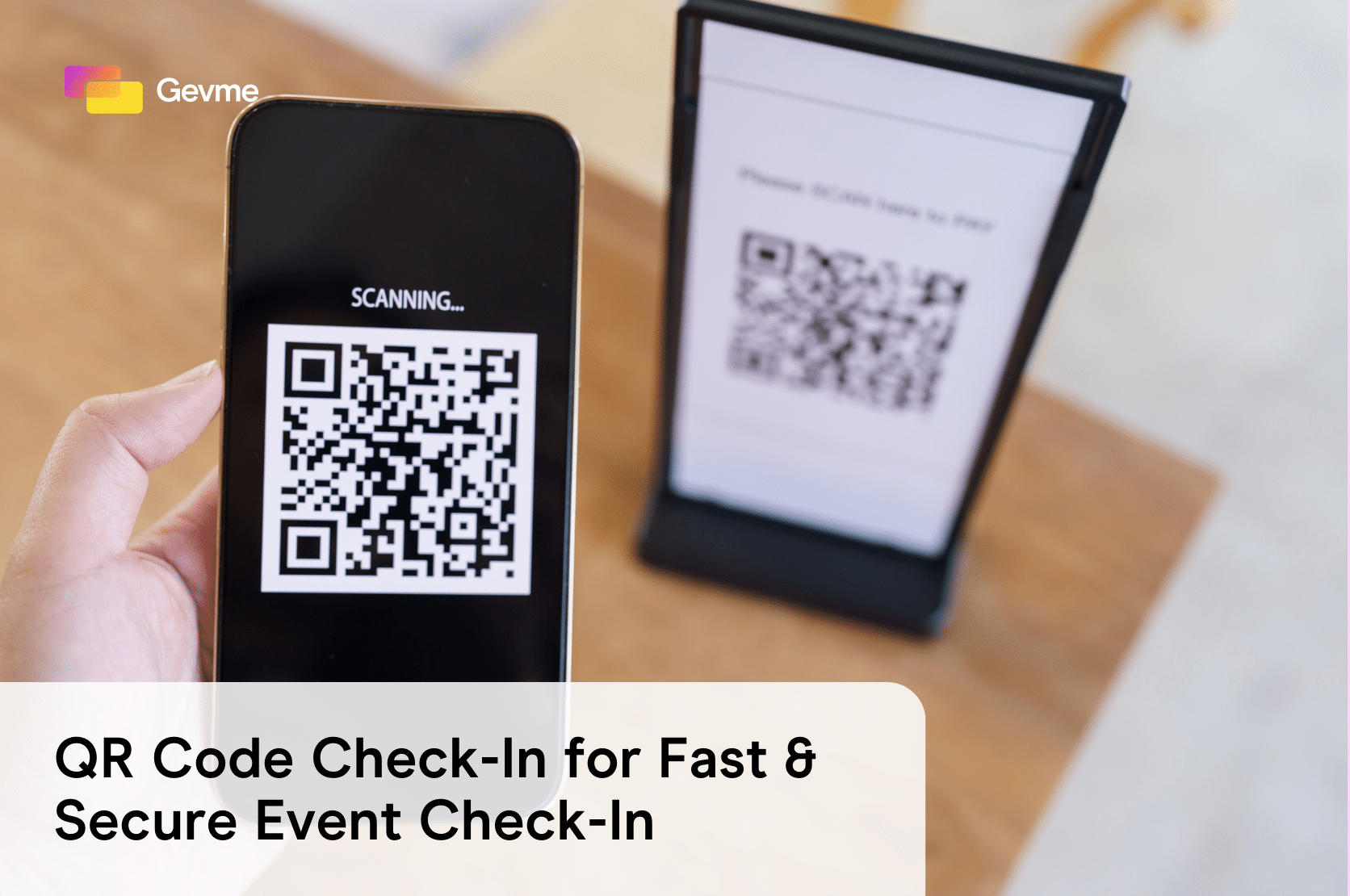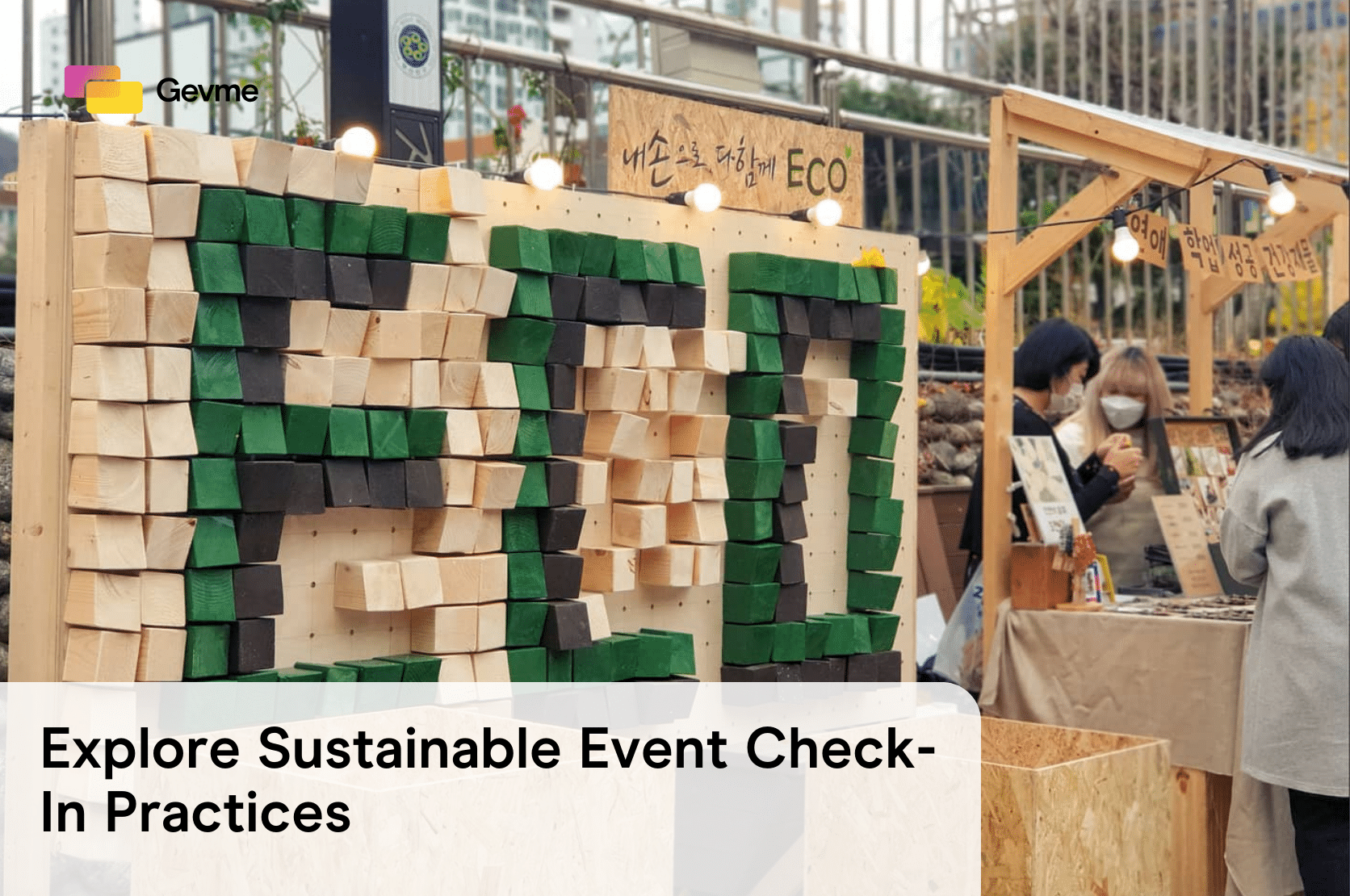As we approach 2024, the event industry continues to evolve rapidly, shaped by new technologies, changing attendee expectations, and global event trends for 2024. In this dynamic landscape, understanding the key event trends that are shaping the future of events is crucial for event professionals. This blog will explore these emerging trends, offering insights into how they will influence the industry and guide event planning and execution in 2024 and beyond. From the rise of hybrid events to the emphasis on sustainability, these event trends are set to redefine the event experience for organisers and attendees alike.

Hybrid Event Models
As we move into 2024, hybrid events are set to become more sophisticated and integral to the event industry:
- Technological Advancements: Cutting-edge technologies are continually elevating hybrid events, making them more immersive and interactive. Developments in streaming quality, augmented and virtual reality, and interactive platforms are bridging the gap between in-person and online experiences.
- Increased Reach and Accessibility: Hybrid events significantly expand audience reach, transcending geographical limitations. They offer a flexible choice between virtual and physical attendance, making events more inclusive and accessible to a global audience.
- Cost-Effectiveness: These events offer economic advantages by reducing the need for extensive physical infrastructure while maintaining the ability to engage a wide audience, reflecting one of the significant event trends in 2024. This efficiency is especially beneficial for organizations with budget constraints.
- Enhanced Networking Opportunities: New tools and platforms are being developed to facilitate networking between virtual and physical attendees, ensuring that virtual participants are as engaged as those attending in person.

- Sustainability: Hybrid models align with environmental sustainability goals. By reducing the need for travel and physical resources, these events help lower the carbon footprint associated with large gatherings.
- Customized Attendee Experiences: Leveraging AI and data analytics, hybrid events can offer personalized experiences for attendees, whether they join online or in person. Tailored content and interactive sessions cater to individual preferences and needs.
- Challenges and Solutions: While hybrid events face challenges such as ensuring technical reliability and keeping virtual attendees engaged, ongoing innovations in technology and event planning are continuously addressing these issues.
Sustainable and Eco-friendly Events
The trend towards sustainability in event planning for 2024 is gaining momentum, encompassing various key aspects:
- Eco-Friendly Venues: As part of the broader 2024 event trends, eco-friendly venues take center stage. Selecting venues goes beyond basic considerations, focusing on buildings with green certifications, energy-efficient designs, and sustainable operations. These venues might also feature organic gardens, natural lighting, and waste reduction programs.
- Waste Reduction Initiatives: Event trends for 2024 involve efforts to reduce waste include comprehensive recycling programs, composting facilities, and initiatives to minimize food waste. Digital solutions for event materials are becoming standard, along with sustainable merchandising strategies.
- Sustainable Catering Options: Catering choices are becoming increasingly eco-conscious, with a focus on farm-to-table suppliers, minimizing meat consumption, and ensuring all seafood is sustainably sourced. Caterers are also adopting zero-waste practices and using biodegradable or compostable serveware.
- Green Transportation Options: Encouraging green transportation encompasses providing electric shuttle services, partnering with eco-friendly taxi services, and setting up bike-sharing stations. Events are also located in accessible areas to promote walking and the use of public transportation.
- Energy Efficiency in Event Production: Energy efficiency extends to every aspect of event production, from digital stage designs that use less energy to solar-powered event equipment. Energy consumption is monitored in real-time to make immediate adjustments for efficiency.
- Engaging Attendees in Sustainability: Engaging attendees involves interactive workshops on sustainability, showcasing eco-friendly innovations, and encouraging participation in green initiatives during the event.
- Offsetting Carbon Footprint: Carbon offsetting is becoming more sophisticated, with events investing in certified environmental projects, using carbon footprint calculators to assess and offset their impact, and even implementing sustainability reporting post-event.

Advanced Event Technology
The landscape of event trends in 2024 is increasingly influenced by advanced technologies:
- Artificial Intelligence (AI): One of the notable 2024 event trends is the use of AI in events. AI is transforming various facets of event planning, such as using sophisticated algorithms for attendee behavior prediction and personalization. It’s automating logistical tasks, offering real-time analytics for event performance, and enhancing attendee engagement through smart recommendations and personalized content.
- Virtual and Augmented Reality (VR/AR): These technologies are creating deeply immersive and interactive experiences for attendees. VR is being used for virtual venue tours, remote attendance experiences, and immersive presentations. AR, on the other hand, is enhancing physical event spaces with digital overlays, providing interactive and engaging experiences for attendees.
- Internet of Things (IoT): IoT is creating a network of connected devices that can significantly enhance event experiences. Smart sensors for crowd management, environmental control systems for optimal comfort, and connected devices for streamlined attendee interactions are some examples. These technologies allow for a more responsive and engaging event environment.
- Advanced Data Analytics: The advent of more sophisticated data analytics tools is unlocking new possibilities for event management. These tools enable a deep dive into understanding attendee behaviors and preferences, facilitating more effective and targeted event planning. Advanced analytics are being used for everything from optimizing event layouts to tailoring marketing campaigns and improving overall event ROI.
- Blockchain for Event Security and Ticketing: Blockchain’s role in enhancing event security and ticketing is becoming more pronounced. This technology offers a secure, tamper-proof system for ticketing, which helps prevent fraud. Additionally, blockchain is being used for secure, transparent handling of attendees’ data, increasing trust and efficiency in event transactions.
- 5G Connectivity: The deployment of 5G is set to revolutionize event connectivity, providing the bandwidth needed for high-demand applications such as virtual reality experiences, high-quality live streaming, and large-scale IoT deployments. This technology is key to supporting the increasingly digital and connected nature of modern events.
- Wearable Technology: Wearable tech is advancing beyond basic tracking, offering more sophisticated features like biometric feedback, which can be used to enhance attendee experiences. These devices are becoming crucial for personalized interactions, real-time health monitoring during events, and providing unique data insights into attendee engagement patterns.

Personalisation and Data-Driven Planning
As part of the broader event trends in 2024, the emphasis on personalization and data-driven planning in event management is becoming more pronounced and sophisticated:
- Leveraging Big Data for Personalization: Event organizers are utilizing big data to gain deep insights into attendee preferences and behaviors. This information is being used to tailor every aspect of the event experience, from marketing messages to session recommendations, ensuring a highly personalized experience for each attendee.
- AI in Personalization: AI technology, with its ability to process and analyze vast amounts of data, is playing a key role in personalizing event experiences. This includes using AI algorithms for creating customized event itineraries, suggesting networking opportunities, and providing tailored content based on individual attendee profiles and past behaviors.
- Predictive Analytics for Event Planning: Predictive analytics tools are being increasingly used to forecast attendee preferences and interests. This allows for anticipatory planning, where events are designed to meet predicted needs and preferences, potentially increasing attendee satisfaction and engagement.
- Data-Driven Venue and Session Selection: The selection of venues and session topics are becoming more data-driven, with decisions based on historical data about attendee preferences and behaviors. This approach helps in choosing venues and designing sessions that are most likely to resonate with the target audience.
- Real-Time Data Utilization: The use of real-time data analytics during events allows for immediate adjustments and improvements. This can include altering session formats, modifying schedules, or addressing any logistical challenges on the spot, enhancing the overall event experience.
- Enhanced Attendee Engagement through Data: Data insights are being used to develop more effective attendee engagement strategies. This includes personalizing communication, customizing activities and sessions to specific attendee groups, and facilitating targeted networking opportunities.
- Privacy and Ethical Use of Data: Amidst the drive for personalization, there is a heightened focus on privacy and the ethical use of attendee data. This involves ensuring that consent for data usage is obtained transparently and that the data is used responsibly, aligning with privacy laws and ethical standards.
Interactive and Immersive Experiences
Integral to event trends in 2024 is the focus on interactive and immersive experiences in events:
- Augmented and Virtual Reality: Augmented and Virtual Reality are being used to create highly immersive environments, transporting attendees to virtual worlds or enhancing the physical venue with digital elements. One of the key components of event trends for 2024, this includes virtual event tours, AR-enhanced presentations, and VR experiences that allow attendees to interact with environments or products in a deeply engaging way.
- Interactive Sessions and Workshops: Moving away from passive participation, sessions and workshops are becoming more interactive, often utilizing technology to allow attendees to contribute in real time. This can include collaborative workshops, breakout sessions with interactive elements, and hands-on activities that engage attendees more deeply in the content.
- Gamification: Gamification is being increasingly adopted to boost engagement. This involves integrating game mechanics like scoring systems, competitions, and reward systems into events to make them more engaging and fun, while also encouraging participation.
- Use of Interactive Technologies: The integration of technologies such as touchscreens, interactive kiosks, and RFID (Radio-Frequency Identification) technology is enhancing attendee engagement. These technologies allow for personalized experiences, such as custom content delivery and interactive wayfinding.
- Live Polling and Q&A Sessions: Interactive features like live polling and Q&A sessions are being used to make events more dynamic. These tools enable real-time audience engagement, allowing attendees to contribute their opinions and questions, which in turn makes sessions more responsive and interactive.
- Immersive Brand Experiences: Brands at events are creating immersive experiences that go beyond traditional displays. This includes interactive product demonstrations, experiential marketing booths, and immersive storytelling that allows attendees to engage with brands in a more meaningful and memorable way.
- Social Media Integration: Integrating social media into events is becoming more sophisticated. Beyond basic hashtag campaigns, this includes features like live social media walls, encouraging attendees to share their experiences in real-time, and interactive challenges that leverage social platforms to enhance event engagement and reach.

Focus on Health and Safety
Health and safety remain top priorities in event management for 2024:
- Continued COVID-19 Precautions: Ongoing management of COVID-19 and similar health concerns remains crucial. This includes regular health updates, maintaining hygiene protocols like hand sanitization stations, and possibly managing social distancing in crowded areas.
- Advanced Health Screening Technologies: The deployment of innovative health screening technologies, such as advanced thermal scanners and touchless systems, is becoming more prevalent, offering efficient ways to monitor the health status of attendees.
- Innovative Safety Protocols: Implementing creative and effective safety protocols, such as crowd control using AI and IoT, to manage large gatherings safely. The use of wearable technology for contact tracing or health monitoring is also being explored.
- Mental Health Considerations: The integration of mental health considerations into event planning is gaining attention. This includes creating quiet zones, wellness activities, and ensuring that the overall event environment is conducive to mental well-being.
- Emergency Preparedness: Strengthening emergency preparedness with comprehensive plans and protocols, including having medical professionals and first-aid services readily available, clearly marked emergency exits, and staff trained in emergency response.
- Accessible and Inclusive Event Design: Designing events to be fully accessible and inclusive, with considerations for attendees with various disabilities, providing necessary accommodations like sign language interpreters, wheelchair access, and sensory-friendly environments.
- Sustainability and Health Intersection: The intersection of sustainability and health is being more deeply explored. This involves offering healthier, sustainably sourced food options, ensuring clean air quality, and creating a greener event space that positively impacts both environmental and attendee health.
Changing Attendee Expectations
As we move into 2024, the evolving expectations of event attendees are becoming more specific and sophisticated:
- Demand for Personalised Experiences: Attendees now expect a high level of personalization in events, reflecting one of the prominent event trends in 2024, from customized agendas to personalized communication and content. They seek experiences that resonate with their individual preferences, career objectives, and interests.
- High-Quality Virtual Options: With the normalization of hybrid events, there’s a heightened expectation for virtual components to offer a quality experience that rivals in-person attendance. This includes high-definition streaming, interactive virtual networking opportunities, and virtual access to key sessions or workshops.
- Sustainability Awareness: Attendees are increasingly environmentally conscious, expecting events to demonstrate sustainable practices, from waste reduction and eco-friendly materials to sustainable food options and minimizing the overall carbon footprint of the event.
- Desire for Interactive and Engaging Content: Modern attendees crave engagement; they want to be active participants rather than passive observers. This includes interactive workshops, immersive technology experiences, live Q&A sessions, and other forms of participatory content.
- Health and Safety Priorities: Post-pandemic, health and safety continue to be top of mind for attendees. They expect clear health protocols, cleanliness standards, and options for social distancing or virtual participation as needed.
- Use of Advanced Technology: There’s an increasing expectation for events to incorporate advanced technology. Attendees are looking for cutting-edge solutions like AR/VR experiences, AI-driven personalization, and innovative uses of technology to enhance their event experience.
- Value for Time and Investment: Attendees are seeking a higher ROI for their time and investment in attending events. They desire unique experiences that provide value, whether through networking opportunities, learning experiences, or entertainment.

Conclusion
As we look towards 2024, it’s clear that the event industry is undergoing a significant transformation driven by emerging event trends. From the growing emphasis on hybrid models and sustainability to the increasing demand for personalized and immersive experiences, these event trends are reshaping how events are conceptualized and delivered. Platforms like Gevme are adapting to these changes, offering solutions that align with these evolving event trends for 2024, particularly in areas like hybrid event facilitation and data-driven personalization.
For event professionals, staying ahead of these event trends will be key to success, requiring adaptability, innovation, and a deep understanding of attendee expectations. Embracing these changes will not only enhance the attendee experience but also drive the industry forward into an exciting future.








